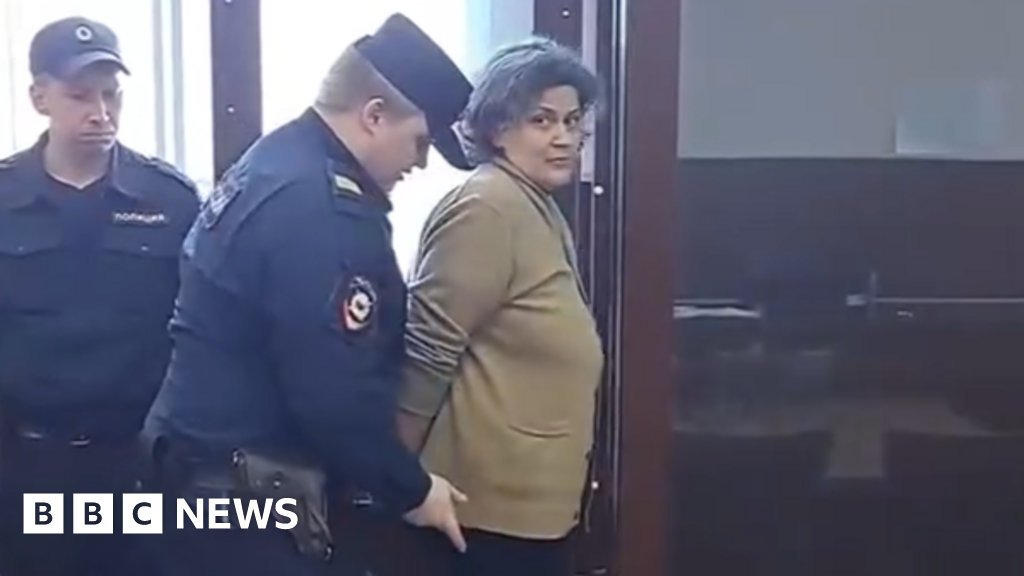A Russian hairdresser named Anna has been sentenced to prison under the country’s “fake news” laws, following a dispute with her neighbor that escalated into criminal charges.
The conflict began as a typical neighborhood disagreement over land use. Anna and her neighbor, Irina, initially collaborated to protect a local forest from developers. However, tensions arose when Irina attempted to rent a plot of land for grazing goats, leading to a personal feud. This dispute took a serious turn when Irina accused Anna of spreading false information about the Russian military, invoking the country’s stringent laws against disseminating “fake news” about the armed forces .BBCThe Moscow Times+6BBC+6euronews+6
Russia’s “fake news” legislation, enacted in 2019 and expanded in 2022, criminalizes the dissemination of information deemed “unreliable” by authorities, especially concerning the military. Penalties can be severe, with individuals facing up to 15 years in prison for violations .euronews+3Wikipedia+3Wikipedia+3
Anna’s case underscores concerns about the potential misuse of these laws for personal vendettas. Her lawyer, Anastasia Pilipenko, highlighted that such legal provisions can be exploited to settle private disputes, stating that “political” charges have become a convenient tool for resolving conflicts between neighbors .BBC
This incident reflects a broader pattern in Russia, where individuals have faced harsh penalties under the “fake news” laws for expressing dissenting views or sharing information that contradicts official narratives. For instance, opposition figure Ilya Yashin received an eight-and-a-half-year sentence for discussing alleged war crimes in Ukraine , and journalist Maria Ponomarenko was sentenced to six years for reporting on the bombing of a theater in Mariupol .The Verge+3euronews+3BBC+3The Moscow Times+2BBC+2Wikipedia+2The Moscow Times
Anna’s imprisonment highlights the potential for these laws to be used beyond their intended scope, raising concerns about freedom of expression and the rule of law in Russia.
Russian Hairdresser Jailed for “Spreading Fake News” About the Military
A Russian court has sentenced a hairdresser to prison for allegedly spreading “fake news” about the Russian military, highlighting the Kremlin’s harsh crackdown on dissent since the invasion of Ukraine.
Key Details of the Case
- Who? Olga Smirnova, a 53-year-old hairdresser from Arkhangelsk, was convicted under Russia’s strict “fake news” laws.
- Accusation: A neighbor reported her for sharing messages on WhatsApp that criticized Russia’s war in Ukraine.
- Sentence: She received a fine and a suspended sentence, but many others have faced years in prison for similar offenses.
Russia’s Crackdown on Free Speech
- Since 2022, Russia has introduced harsh laws criminalizing criticism of the military.
- Punishments:
- Up to 15 years in prison for spreading “fake news” about the military.
- Fines or jail time for calling the war a “war” (officially termed a “special military operation”).
- Widespread arrests: Journalists, activists, and even ordinary citizens have been targeted.
Why This Matters
- Silencing Dissent: The case shows how even private conversations can lead to prosecution.
- Neighbor vs. Neighbor: Encouraging citizens to report each other fosters a climate of fear (reminiscent of Soviet-era tactics).
- Escalating Repression: The law is being used to punish even mild criticism, not just organized opposition.
International Response
- Human rights groups (Amnesty International, HRW) have condemned Russia’s suppression of free speech.
- The EU and US have sanctioned officials involved in enforcing these laws.
Conclusion
This case is another example of how Russia’s government is criminalizing dissent, turning even private chats into grounds for prosecution. With thousands already fined or jailed, the crackdown shows no signs of easing.
Would you like details on similar cases or Russia’s broader censorship laws?
LinkedIn Post (Professional Tone):
🚨 Russia’s War on Free Speech: Hairdresser Jailed for WhatsApp Messages About Ukraine
A Russian court has sentenced Olga Smirnova, a 53-year-old hairdresser, for sharing messages criticizing the military on WhatsApp—reported by a neighbor.
🔹 Case Details:
- Charged under Russia’s “fake news” law (up to 15 years in prison).
- Reflects a broader crackdown since 2022, with journalists, activists, and even civilians targeted.
- Soviet-style surveillance? Encouraging citizens to report “disloyal” speech fuels fear.
🔹 Why It Matters:
- Free speech erosion: Even private chats can lead to prosecution.
- Legal weaponization: Laws designed to silence Ukraine war dissent.
- Global response: HRW & Amnesty condemn; West imposes sanctions.
📌 Question: How far should governments go in policing speech during conflicts? Should private criticism be criminalized?
